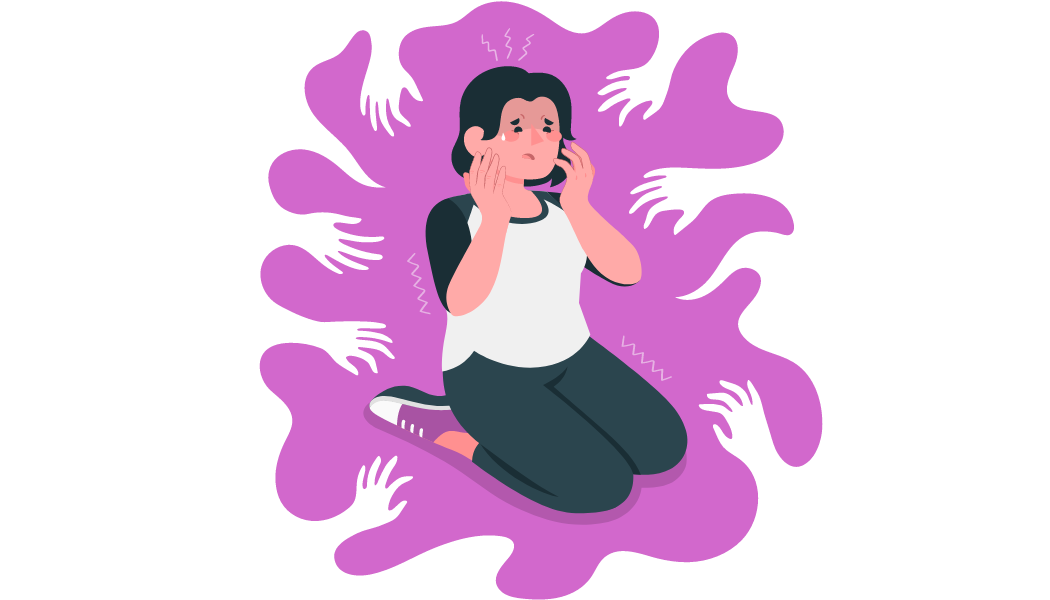Have you ever started researching a topic and before you know it, you’ve fallen down a rabbit hole and suddenly you’re making connections and seeing things in a different light than ever before? That’s exactly what happened to me after spending the last 4 weeks researching the connection between trauma and shame.
We’ve all experienced shame at some point in our lives, yet no one really wants to talk about it. I mean, it makes sense… shame isn’t a glamorous emotion, it’s actually quite the opposite. Shame can feel heavy, uncomfortable, and sometimes distressing, and often creeps up when you least expect it. For me, it’s a little voice in my head that tells me “I’m not enough” or “I’m unlovable”.
Throughout my research I learned a lot about shame, but the thing that I can’t stop thinking about is how feelings of shame are often deeply rooted in trauma. So, what exactly is the connection between trauma and shame? Well, shame is more than just feeling bad about something you did, it’s feeling bad about who you are – often as a result of painful experiences and trauma.
For me, the realization that my feelings of shame were deeply rooted in past traumas was a game-changer. Before that, I just thought I was broken in some fundamental way. It wasn’t until I started digging a bit deeper that I began to understand how trauma had laid the foundation for shame to thrive.
One of the first steps in tackling shame is being able to identify it. This can be tricky, since it often hides behind other emotions, like anger, avoidance, and even people-pleasing. Sometimes you might not even know that shame is the underlying emotion. But here’s the good news: once you can name it, you can start to work through it. For me, that meant talking about my shame experiences, with friends, family, and a therapist. Putting a name to what I was feeling was like shining a light in a dark room – suddenly things didn’t seem so scary. I found offering myself compassion and treating myself with the same kindness I’d offer to a friend incredibly helpful. It’s about giving myself (and yourself too!) permission to be human.
Another powerful realization is understanding that trauma and shame thrive in secrecy. By sharing my own experiences and hearing others’ stories, we may start to see that we’re not alone. It’s amazing how much lighter things can feel when you realize that other people are dealing with similar feelings. So, let’s take away shames power by talking about it, and bringing the shadows into the light. Whether it’s through writing, conversations, or just sitting with our feelings, we can begin to loosen the grip that trauma and shame have on us and take a step towards healing.
Paige is an advanced practicum student at The Cove. She’s going into her final year in the Bachelor of Applied Science in Community Social Services program at the University of Guelph-Humber. She is passionate about mental health, specifically in the relationship between women’s hormonal fluctuations and mental well-being. If you ever engage in a conversation with Paige, don’t be surprised if she asks you what your zodiac sign is.

